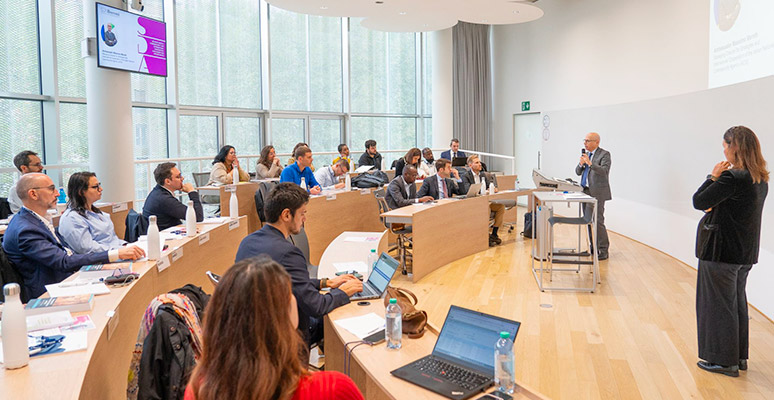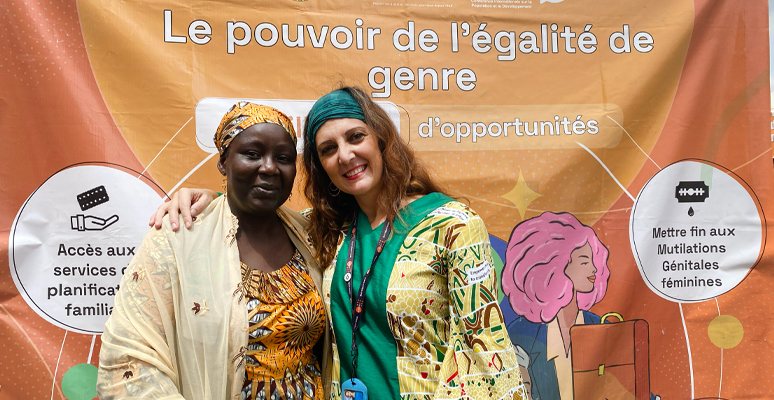
- Start date
- Duration
- Format
- Language
- 9 Apr 2025
- 3 Days
- Class
- Italian
Valutare le opportunità di finanziamento di fonte europea a sostegno dei propri progetti di investimento, ricerca e innovazione, e gestire al meglio i fondi ottenuti.
Thanks to a partnership between SDA Bocconi School of Management and the Price School of Public Policy of the University of Southern California, a delegation of 8 students from all over the world studied the case of the Italian Civil Protection. On 1st June 2017, at the headquarters of the Civil Protection Department in via Vitorchiano, Rome, they presented the results of their research, focused on the role of social media in the handling of emergencies. Among the topics they covered, the students highlighted how the Italian civil protection model is a sort of “offline crowdsourcing”, meaning an activity co-produced by several players, both public and private, who collaborate in case of emergency. What stands out is the variegated and super-specialized world of volunteering. It’s a sort of platform that is anything but virtual, and it’s as if it had anticipated the collaborative models post-web 2.0.
The initiative is the result of a consolidated relationship between the two Schools, both invested in developing managerial skills for the public interest. “After collaborating for two years the Price School of Public Policy decided to sign a three-year agreement with SDA Bocconi to organize a Summer Lab in which Californian students consult for the Italian public administration,” says Veronica Vecchi, SDA Professor of Public Management and Policy and in charge of coordinating the Summer Lab for the Price School of Public Policy.
Eric Heikkila, the Price School professor who led the group of students, explained the success of the recently concluded session: “It was one of the best field projects the partnership has ever done, especially thanks to the availability and collaboration given by the top managers and executives from the Civil Protection Department and by the world that revolves around it: our students learned a lot.” Among the experts that were interviewed to carry out the analysis, the students talked to Luca Calzolari, from Cervelli in Azione, an expert on risk and emergency communication and editor of ilgiornaledellaprotezionecivile.it. He told the students about some of his experiences in using social media in the world of Civil Protection. The students then met Sergio Visci from Siemens Healthcare and Maria Chiara Roti from Fondazione Rava, who gave them more food for thought regarding, respectively, the potential of IT services to put the user/citizen at the center of it all and the experience Fondazione Rava had in reconstructing a few schools in the center of Italy after the earthquake by mobilizing the available skills before the financial resources.
“We were sure that foreign students would find the Italian Civil Protection case study interesting: its organizational model is more similar to a ‘net’ of horizontal collaboration, where the protagonists are the private and third sectors, instead of following a traditional public administration model. It could inspire other public services in Italy and abroad,” says Raffaella Saporito, Director of the Executive Master in Management delle Amministrazioni Pubbliche - EMMAP, involved in this initiative.
Roberto Giarola, head of the department that followed the project with the two universities ever since its inception, thinks the collaboration was very useful: “Being studied by someone from the outside was quite an interesting experience, allowing us to think about our strong points – such as our net-style organizational model – and also about the prospective developments: we received some very interesting ideas on how to bolster our presence on the social networks in an intelligent and ‘contemporary’ way, taking advantage of the fact that we are ‘web’ by nature.”
SDA Bocconi School of Management

Valutare le opportunità di finanziamento di fonte europea a sostegno dei propri progetti di investimento, ricerca e innovazione, e gestire al meglio i fondi ottenuti.

Acquire the knowledge and key tools needed to be an effective leader in the public administration.

Il corso punta a potenziare le competenze manageriali e definire le logiche e gli strumenti fondamentali a supporto del cambiamento “agile” dei modelli organizzativi.


